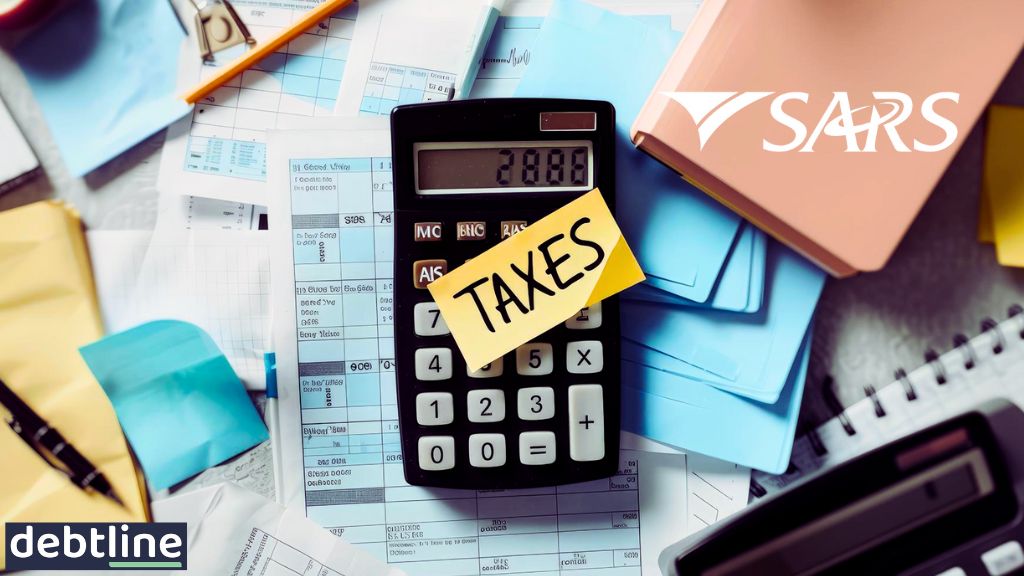SARS Tax Update: Understanding The New Retirement Fund Taxation

The South African Revenue Service (SARS) has introduced significant changes to the taxation of retirement fund contributions for the 2024 tax season, effective March 2024. These amendments bring about new rules on taxing contributions, particularly for individuals with assessment periods shorter than 12 months.
Read: Your Guide To Tax Season in South Africa
This article delves into the key aspects of these changes, offering a comprehensive overview of what South African taxpayers need to know. Understanding these changes will empower you to navigate the tax season with confidence and control over your financial situation.
A New Approach to Retirement Contributions
The most notable change for 2024 revolves around the pro-rata deduction regarding retirement fund contributions. According to SARS, Section 11F(2)(a) of the Income Tax Act No 58 of 1962 has been amended to ensure that the allowable retirement contribution deduction is adjusted when the assessment year is less than 12 months.
This adjustment, designed to ensure fairness, reassures taxpayers that they are not unfairly advantaged or disadvantaged by the length of their assessment period, instilling trust in the tax system.
Key Changes to the Retirement Fund Contributions
Below, we explore the prorate deductions, insolvency, and residency cessation and their revised tax implications in more detail.
Pro-Rata Deductions and Their Implications
This change is particularly relevant for taxpayers who may experience a shorter assessment period due to specific circumstances such as insolvency or the cessation of tax residency. SARS provided a straightforward formula to calculate the allowable deduction:
The deduction amount is adjusted by the ratio of the number of days in the assessment period to the full 365 days of the year. For instance, if a taxpayer’s assessment period is only six months, the R350,000 cap on retirement fund contributions will be halved, allowing a maximum deduction of R175,000.
Case Examples: Insolvency and Tax Residency Cessation
The case examples below underscore the importance of understanding how the new rules apply to unique situations, ensuring taxpayers accurately calculate their deductions.
- Insolvency and Its Tax Implications
Consider a scenario where a taxpayer becomes insolvent during the tax year. SARS illustrated this with an example of a taxpayer declaring insolvency on 31 October 2024. From 1 March 2024 to 31 October 2024, the taxpayer’s allowable retirement contribution deduction was R200,000.
After insolvency, from 1 November 2024 to 28 February 2025, the taxpayer’s new assessment period allows for a deduction of R150,000. This scenario highlights how the pro-rata rule adjusts the allowable deduction across different assessment periods within the same tax year.
- Cessation of Tax Residency
Another critical example involves the cessation of tax residency. A taxpayer who ends their tax residency on 31 July 2024 will have two distinct assessment periods within the same tax year. The individual might utilise the full R350,000 deduction for the period before their residency ends. However, after 31 July, further retirement contribution deduction would only be available if they had already applied the full amount in the earlier period.
Broader Changes in the 2024 Tax Season
In addition to changes in retirement fund contributions, SARS has introduced other significant updates for the 2024 tax season. These include adjustments to tax-free savings accounts, where contribution limits will now also be prorated if the assessment period is less than 12 months.
Read: New ‘Two-Pot’ System Law – What it Means for You
Furthermore, the solar tax rebate, introduced to encourage investments in renewable energy, will be a key feature for the 2024 tax filings. Taxpayers who invested in solar PV panels between 1 March 2023 and 29 February 2024 can claim a 25% rebate, capped at R15,000.
These changes reflect SARS’s ongoing efforts to promote equitable tax practices while incentivising behaviours aligning with national priorities, such as adopting renewable energy.
Navigating the 2024 Tax Season: Key Takeaways
The 2024 tax season brings many changes that South African taxpayers must navigate carefully. The introduction of pro-rata deductions for retirement fund contributions, the adjustments to tax-free savings accounts, and the new solar tax rebate all represent significant shifts in the tax landscape. These changes highlight the importance of timely and accurate tax filing for those facing unique circumstances, such as insolvency or the cessation of tax residency.
Preparing for a Smooth Filing Season
It’s crucial for taxpayers to stay informed and consult with tax professionals. Seeking external support can help you navigate the changes, maximise your allowable deductions, and ensure compliance with SARS regulations. Additionally, tax professionals can help make you feel less overwhelmed and more supported during the tax season.
Read: The Reality of Taxes and Debt in South Africa
As the 2024 tax season unfolds, South African taxpayers must adapt to these new regulations to optimise their individual tax filings. Understanding how the changes to retirement fund contributions, tax-free savings, and other incentives affect your financial situation is key to ensuring that you do not face unnecessary penalties or missed opportunities.
What Debtline Offers
At Debtline, we understand that navigating the complexities of tax season can be overwhelming, especially with new regulations in place. Our team is here to provide expert guidance on managing your debt and ensuring you stay on track with your financial goals.
Whether dealing with retirement fund contributions, tax deductions, or other financial challenges, we offer personalised solutions to help you achieve financial stability. For a free callback or to learn more about how we can support you during this tax season and beyond, contact us today or fill out our online form.